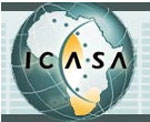South Africa's ‘excessive' media ownership and control at the hands of a very few players continues to be the main topic of discussion in political, media, civil society and academic circles, with some calling for an urgent intervention to regulate what they see as a ‘selfish' and ‘slow-transforming' industry.
Anti-capitalism critics argue that this Western-inspired practice is hurting democracy, stifling black voices and failing to create business and employment opportunities for the black majority.
Struggling small players in community media - print and broadcasting - who get a ‘modest' financial help from the Media Development and Diversity Agency (MDDA) complain of unfair treatment and lack of support by the big guns.
Audience growth not matched by ad revenue growth
Privately owned community radio stations, mostly operating under the umbrella of the National Community Radio Forum (NCRF), have seen their audiences grow tremendously in the past five years or so. However, they still struggle to survive due to lack of support from government entities and corporates, and ‘Big Brother' Sentech threatening to cut them off if they fail to pay what many believe to be ‘exorbitant' fees for signal distribution.
Community station Soweto TV is also making strides, but still sings the same song - advertising revenue is not coming fast enough, as corporates and government take their main business to SABC and e.tv, leaving it sad, dry and thirsty.
Soweto is home to some 1.4 million people spending at least R4.2bn annually on groceries, according to a Palmer Development Group study.
Caxton, Avusa, Media24 and foreign-owned Independent Newspapers own 95% or so of SA print media, while 42% of radio is owned by the government-controlled public broadcaster SABC, according to a MDDA 2009 report.
The Independent Communications Authority of South Africa (ICASA), which has had enough of broadcasting sector's instability, fragmentation, unfair advantage and unfair competition, published its position paper on 13 January 2004.
Seeking ‘liberalisation' in broadcasting
ICASA said one of the aims of its discussion paper was to seek the ‘liberalisation' of broadcasting, which includes the formation of complex entities offering a more valued portfolio of products and services within existing markets.
ICASA also needs to ensure that broadcasting services, when viewed collectively, are controlled by persons or groups of persons from a diverse range of communities in SA.
Free-to-air private broadcaster e.tv had argued that the dominance of the SABC in the commercial radio and TV gives it added advantages over regional commercial competitors.
Furthermore, some observers argued that easing current restrictions on ownership would help inject more investment into the sector should local investors run out of money.
Others, however, call for foreign ownership to be further limited, saying it stifles local opportunities and diversity of local views.
Limited stake
Currently the law prohibits foreigners from owning more than a 20% stake in broadcasting services.
M-Net submitted that a review of the 20% limitation on foreign ownership of broadcasting services would be appropriate to, among others, allow African (non-SA) investors to invest in the SA broadcasting industry.
The National Association of Broadcasters (NAB) and Primedia however want foreign equity ownership - direct or indirect - to be increased to 25%.
In its submission to ICASA, the MDDA said it was in favour of promoting a little relaxation in respect of limitations of foreign ownership.
There is a need to increase foreign investment, but limited, in order to ensure that the broadcasting system is in the accordance with the objectives of the Act, and controlled by South Africans, MDDA CEO Lumko Mtimde said.
“Diversity of views and opinions would be enhanced by diverse ownership and control, by diverse languages, diverse formats, diverse news and programming, diverse sources of news and information,” Mtimde pointed out.















































